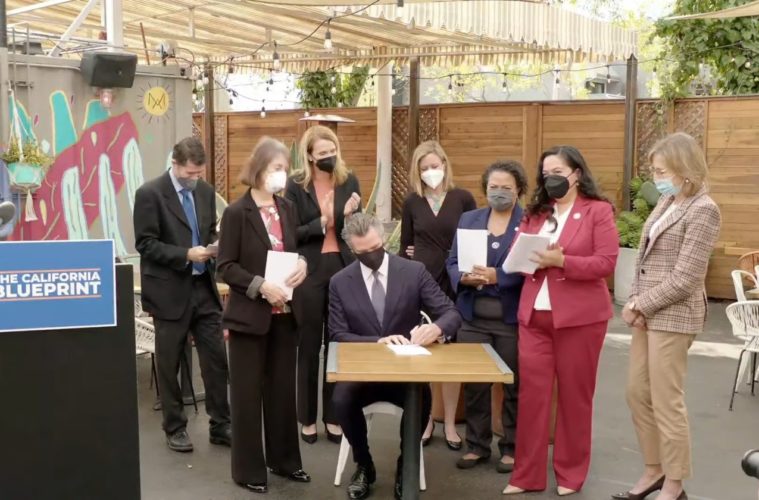Eligibility for COVID-19 paid sick leave will return to California after Gov. Gavin Newsom signed a supplemental paid sick leave bill, Wednesday.
The law will apply to businesses with more than 25 employees and allow for up to 80 hours of paid time off when unable to work because of time under quarantine, caring for COVID-impacted family members, or attending a COVID-19 vaccination appointment.
COVID-19 related paid time off was previously offered on a federal level, but expired September 30, 2021.
“As California continues to lead the nation’s economic recovery, today’s action deepens our commitment to supporting the workers and businesses that have sustained us all during this unprecedented pandemic and are driving our economy,” Gov. Newsom said Wednesday. “We’re ensuring that workers have the time they need to take care of themselves and their loved ones, expanding our nation-leading small business relief grant program and supporting the businesses whose innovation and entrepreneurial spirit help make California the 5th largest economy in the world.”
Employees may get paid for the first 40 hours of time off for themselves, with an additional 40 hours if they must care for a family member with COVID-19. Cost for employee COVID-19 tests will still need to be covered by employers.
Employers have the right to limit the time off for workers getting booster vaccinations to three days or 24 work hours unless a healthcare provider expresses the need for more time.
The bill will be retroactive to January 1, meaning those who missed work due to COVID-19 during the latest Omicron surge, may get paid for that time. The bill will be effective until September 30, 2022.
The bill will not cover smaller businesses with fewer than 25 employees, however, potentially leaving 1-in-4 employees without the benefit of the newly signed bill, according to Cal Matters.
Newsom also signed a $6.1 billion bill, which is meant to provide California small businesses with tax credits and grants. Restaurants that were forced to shut down, may receive tax cuts from a dedicated budget portion of $500 million. Another $5.5 billion will be dedicated to restored tax deductions and tax credits.



